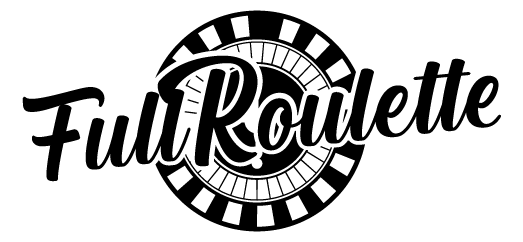Roulette is an interesting gamble. Many players call it purely a luck-based game due to how it functions. You place wagers and wait for the croupier to spin the wheel. It all comes down to where the ball stops on the spinning wheel to determine the payouts. Despite its unpredictable outcomes, many roulette players look for devious methods to turn the odds in their favor. Today, we will discover how to cheat at roulette and why you shouldn’t try it.
Four Methods to Cheat at Roulette
Although modern casinos leave no space for cheating, some players have been smart enough in the past to cheat at roulette. Let’s look at the ways they used to deceive casinos.
The Late Betting Technique
Being a roulette player, you might have regretted placing smaller bets on winning numbers every once. It is the story of almost every roulette player who plays with caution. When luck is around your corner, the ball may stop on the numbers you bet in the first place. If you are lucky enough to place high wagers, you may get the rewards you dreamed of.
Some players rely on the late betting technique when it doesn’t happen. This cheating method involves the trick of your hand. When the croupier looks at the wheel to determine where the ball landed, it takes them a fraction of a second to take their eyes off the betting table and look back. A player can use this tiny second to increase wagers on the winning number. This way, they can turn their small reward into a big one without the croupier knowing.
Why Shouldn’t You Try Late Betting?
Casinos have had many chances to learn their lessons. The late betting method would have worked fine many years ago. Modern casinos have surveillance to monitor such acts. Moreover, croupiers can memorize player bets to identify a cheating act. If they notice a change, late betters might face penalties and hefty fines imposed by the court.
Joining Forces with a Croupier
In the past, joining forces with a croupier was a possibility in some casinos. Players looked for croupiers willing to make significant prize money overnight. Such croupiers used various ways to favor the partner players. The most common way most players opt for cheating at roulette is by chipping the croupier not to spill any information.
When players tried techniques like late betting at roulette, they would do so under the influence of a croupier. The croupier essentially met all the demands of an “inside man” to favor the outcomes in the cheating players’ favor.
Why Shouldn’t You Partner With a Croupier?
Let’s face it, cheating in a modern-day casino is pushing yourself into a pit of fire. Modern casinos have super-efficient surveillance teams to monitor cheating activities. While partnering with a croupier may sound like a good plan, it merely takes a few moments to detect such bonds within a casino.
Once caught, the casino may take legal action against the croupier and the partnering members. Keeping a few examples from the past in view, partnering teams face multiple charges and face jail time while paying hefty fines.
The Laser Measurement Technique
The laser measurement technique is impossible to use in the modern casino environment. This method uses a laser beam to evaluate the ball’s speed while it moves on the spinning wheel to determine where it will stop. The method isn’t as simple as it sounds. A player must have a computer to chart the speed accurately.
Norman Packard, a physicist at the Santa Fe Institute (New Mexico), introduced this technique in the 1970s. While he tried the method a few times and stopped doing it, the roulette-cheating players found it magical to bag significant rewards. However, bringing a mini-computer or a laser beam to the roulette table might be possible a few decades back. Modern casinos are a no-go zone with such gadgets.
Why Shouldn’t You Try Laser Measurement?
It goes without saying that pulling out a laser beam from your pocket at the roulette table will get you removed from the table in the modern-day casino spectrum. The strict surveillance allows the casino management to monitor every movement during gameplay to ensure cheat-free gambling sessions. Using a laser beam nowadays means inviting legal trouble to your roulette table.

Creating a Magnetic Field
Although it seems interesting, this technique requires putting much at stake when playing roulette. Some roulette teams in the past used ways to create magnetic fields around the roulette wheels. The magnetic influence pulled the spinning ball towards desirable outcomes to ensure big wins.
Generally, roulette teams used a remote-controlled roulette ball to alter the natural outcomes of the spinning wheel. The lack of surveillance and advanced monitoring systems left some space for such methods back in the day. This technique served as a magic trick for many players to ensure significant rewards.
Why Shouldn’t You Try Creating a Magnetic Field?
Every cheating technique used by roulette players over the years came to an end due to the smart minds of casino management. Modern casinos operate in a super-controlled environment where every move has a positive or negative outcome. Players cannot enjoy the same freedom anymore.
Many modern casinos use sensors to detect magnetic fields on a roulette table. Moreover, magnetic balls behave differently. Croupiers know the possible outcomes of the roulette ball when it moves naturally. They may quickly notice a change in the ball movement and bust the player’s plan right away.
The Takeaway
The above techniques can help you understand how to cheat at roulette and why you shouldn’t. While nobody hates winning extra rewards, cheating is unethical in every aspect. As a roulette player, you may focus on mastering some roulette winning strategies to turn the odds in your favor. Some players look for shortcuts to bag huge profits. They often face backlash for choosing devious methods to win. If you want to learn how to play roulette like a pro, head on to one of the expert forums online to start with.


Leave a Reply